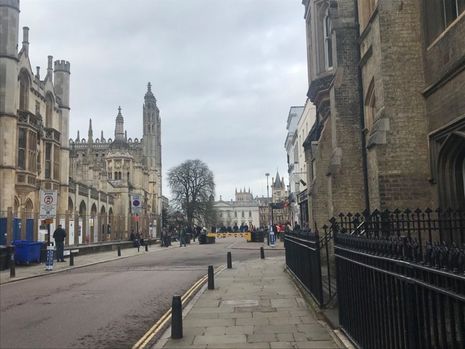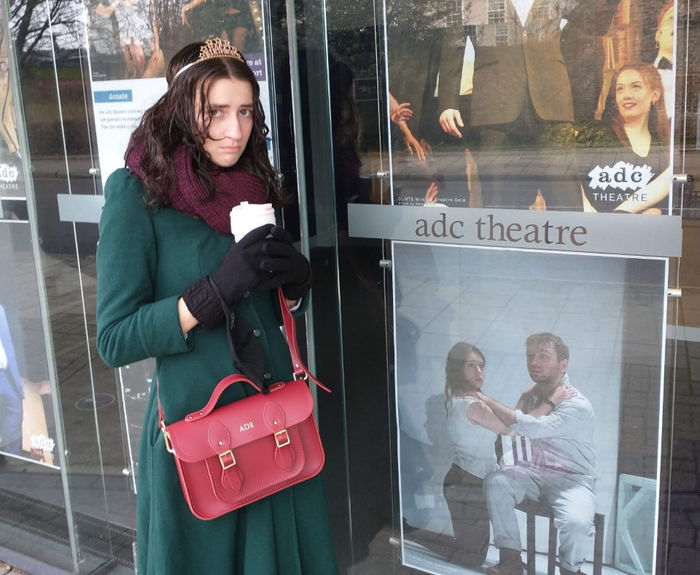My Degree and Me
Even though Scarlet Rowe has not fallen in love with her degree yet, she wouldn’t swap it for anything else either. Why is this the case?

I used to have this rose-tinted vision that I’d fall in love with my degree and defend it to the death, but I’m not so sure about that anymore. I’m halfway through my degree now, and as I haven’t found a burning passion for it yet, I’m beginning to doubt that I ever will. This is something which I am surprisingly okay wit
If you had said to Year 13 Scarlet that she would specialise in social anthropology, she would have looked at you baffled and bewildered. ‘Anthropology, who’s that?’ I’d have asked, thinking it’s the name of the new popular kid in school. I really had no clue what it was. So upon applying for HSPS, I had to google ‘define anthropology’ and watch a YouTube video on it in an attempt to sound vaguely knowledgeable about it at interview. Following this quick research project, I got the gist that it was a ‘study of human culture’, but I didn’t get much further than that. At the time, it just didn’t interest me that much. Luckily, my interviewers sussed that I was more of a politics person (back in the day), so I managed to nearly steer clear of the subject entirely. Skip forward two years, and here I am studying single track social anthropology.
“Within a few weeks of starting Cambridge, we had explored magic, rituals, economic exchanges and kinship”
Much to my surprise, the anthropology paper was by far my favourite last year. Within a few weeks of starting Cambridge, we had explored magic, rituals, economic exchanges and kinship. I was impressed by the flexibility of the subject, and how every single anthropologist offered new ways of thinking about and making sense of cultures. I had never realised how many lenses could be used to understand topics before. In all honesty, I was also taken aback by how interesting and relevant the anthropological writings were. I had expected the subject to consist of kindly and clever people who drink tea and write books occasionally which few people read. Although this presumption wasn’t entirely untrue, I was pleasantly surprised at how anthropologists were not afraid to shy away from key political and economic topics.
One and a half years in, I’ve given up on trying to explain what social anthropology is to most people because their eyes quickly glaze over when I start talking. I think this is because my powers of persuasion are severely limited, and also because I genuinely don’t have a good working definition for the subject. The thing is, it really is a mixture of politics, sociology and history to name a few. It just doesn’t fit neatly into a box. What distinguishes anthropology from other social sciences is its reliance on ‘ethnography’, which is another word for fieldwork. The content of ethnographies ranges from how people express gender to gift exchange to conceptions of motherhood to how divorce shapes families. You name it, there’s probably an ethnography on it.
“I tend to go for the ‘something else altogether’ approach, just to be difficult”
At the risk of unintentionally sounding like an influencer, the great thing with social anthropology is that it really allows you to study whatever you are interested in. This year, I am doing a paper on European ethnography which explores topics from censorship in the Soviet era to Islamophobia in Norway. I am doing another paper on the foundations of the state, with my most recent essay being on whether religious sacrifice is a gift, a form of barter, or something else altogether. I tend to go for the ‘something else altogether’ approach, just to be difficult.
My favourite paper of all is called ‘Development, poverty and social justice’. It entails questions surrounding whether NGOs do more harm than good and how notions of ‘good’ and ‘bad’ governance come to be formed. I had a supervision for this paper yesterday on the merits (if any) of cultural approaches to poverty. One of the readings was about cosmetic surgery in Brazil, and how popular understandings of beauty come to be racialised and gendered. These are the sorts of supervisions (and readings) that I half wish would never end because there is so much to discuss.
If I may dampen the tone a little here; my main complaint about anthropology is that sometimes the readings can be very dense and hard to understand. Most anthropologists seem to only write for other anthropologists, so they presume that readers have background knowledge of whatever they’re talking about which, in my case, is rarely true. This can be exasperating, especially if essays reference Ancient Greek philosophers or obscure economists. In these cases, severe willpower and patience is needed to stop me from resigning my degree in a flurry of rage.
I recognise that I may not have completely sold social anthropology to you. Social anthropology has not completely sold itself to me either. Despite this, I do enjoy studying it, and I can’t picture myself doing anything else. Degrees are designed to be a bit stressful and challenging at points, and social anthropology is no exception from this. So although I may never love my degree, I think that all in all, we get along just fine.
 News / Uni Scout and Guide Club affirms trans inclusion 12 December 2025
News / Uni Scout and Guide Club affirms trans inclusion 12 December 2025 News / Cambridge Vet School gets lifeline year to stay accredited28 November 2025
News / Cambridge Vet School gets lifeline year to stay accredited28 November 2025 News / Cambridge study finds students learn better with notes than AI13 December 2025
News / Cambridge study finds students learn better with notes than AI13 December 2025 Science / Did your ex trip on King’s Parade? The science behind the ‘ick’12 December 2025
Science / Did your ex trip on King’s Parade? The science behind the ‘ick’12 December 2025 News / Pembroke to convert listed office building into accom9 December 2025
News / Pembroke to convert listed office building into accom9 December 2025









